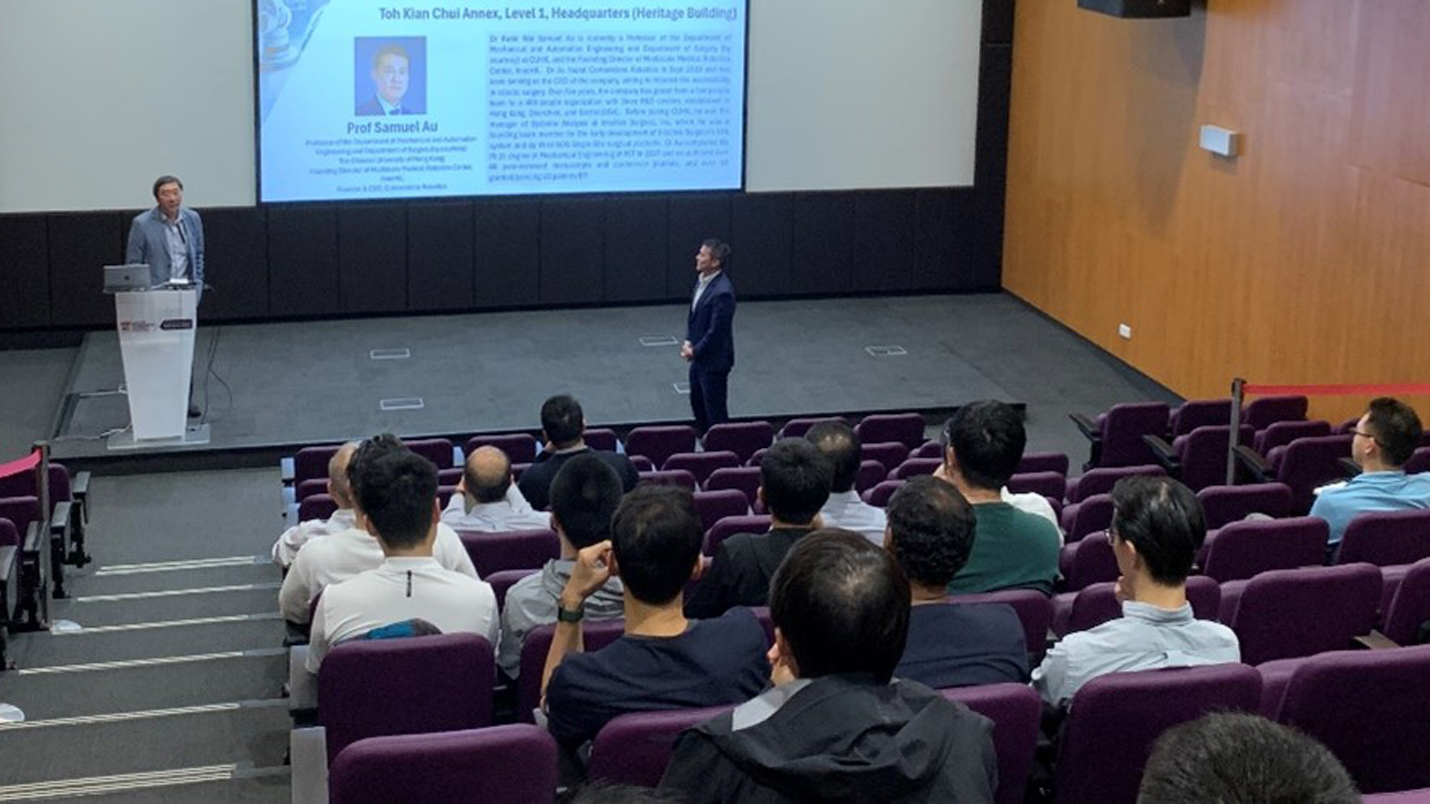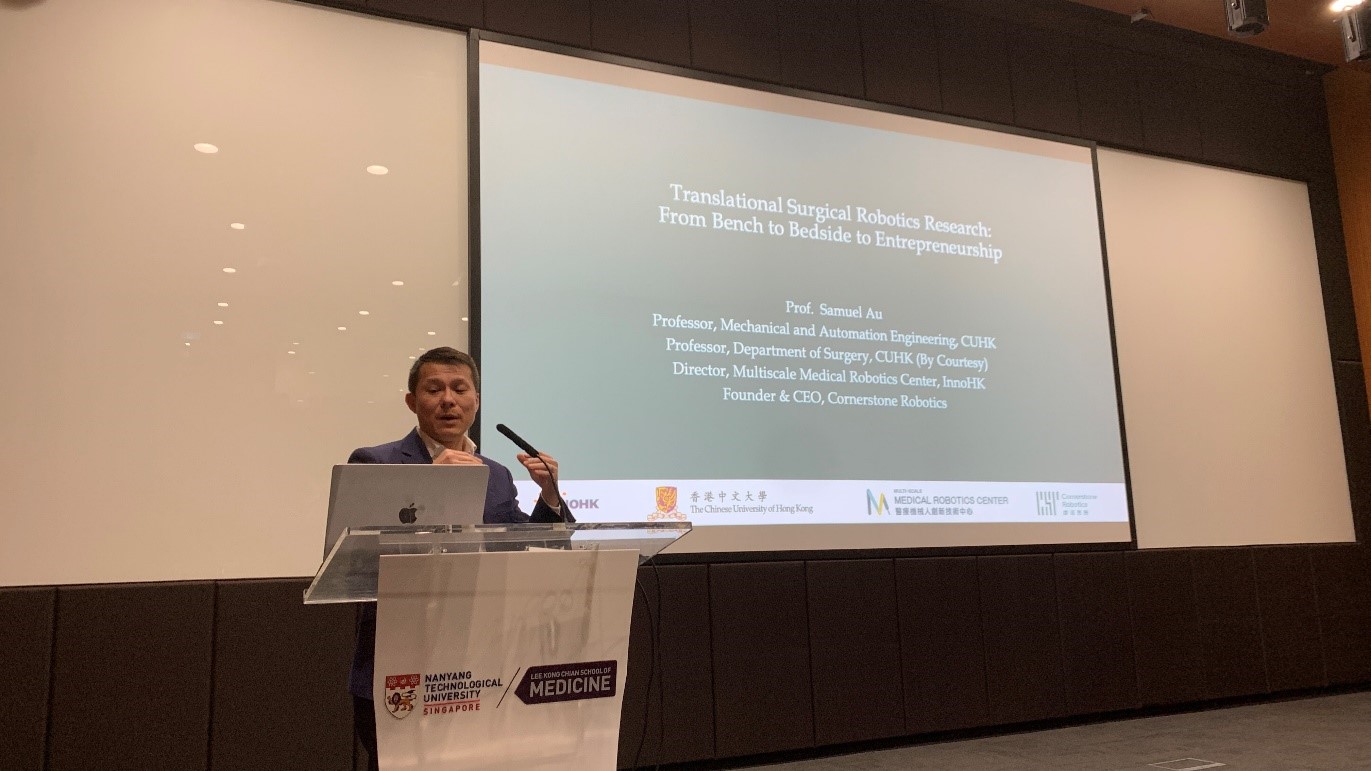Translational Surgical Robotics Research: From Bench to Bedside to Entrepreneurship
LKCMedicine and, our primary clinical partner, the National Healthcare Group (NHG) co-hosted a lecture by Professor Samuel Au from The Chinese University of Hong Kong’s Department of Mechanical and Automation Engineering and Department of Surgery (by courtesy) on January 20, 2025. Held at LKCMedicine’s Toh Kian Chui Annex, the event attracted over 40 attendees, including engineering and clinical faculty, research fellows, and students.

Prof Au began his talk by sharing his inspiring journey of fostering engineer-clinician collaborations to translate innovative technologies from the lab to real-world clinical applications. He detailed an eight-year process that included conceptualisation, team building, research development, prototyping, and final product creation. Prof Au emphasised that success relies on partnerships with clinicians who are passionate and committed to long-term collaboration, even without immediate results as development often requires years of effort. In addition to passion and expertise, he highlighted the essential roles of friendship and luck in achieving breakthroughs.

Healthcare translation is not purely research-driven; it resonates deeply with our School’s mission of nurturing doctors whom you and I would like caring for us. Similarly, engineers, clinicians, and developers should adopt the same principle of creating medical devices that meet the real needs of patients and healthcare providers. To this end, Prof Au’s team made numerous iterations and refinements to enhance user experience, even when these improvements could not be published in high-impact journals. He underscored the importance of such practical advancements for successful translation.
Looking ahead, Prof Au shared his vision for the future of robotic surgery. He described the development of a “super-assistant” that enhances clinicians’ capabilities and envisions a network of robotic platforms to facilitate seamless surgeon training and minimise unnecessary travel for clinicians. He expressed confidence that robots will complement rather than replace doctors, augmenting their roles to deliver superior patient care.

The lecture concluded with a dynamic Q&A segment and a networking session, leaving participants inspired and energised by the exchange of ideas.




.tmb-listing.jpg?Culture=en&sfvrsn=84a93c56_1)


